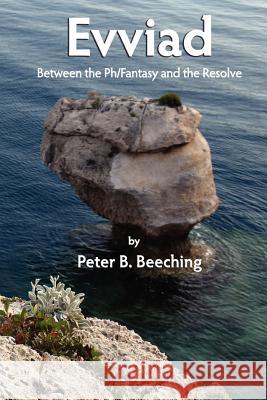Evviad, Between the Ph/Fantasy and the Resolve » książka
Evviad, Between the Ph/Fantasy and the Resolve
ISBN-13: 9781478389347 / Angielski / Miękka / 2012 / 302 str.
To most, peace of mind trumps all. Texas Gov. John Connally, surviving an assassin's bullet in U.S. President John F. Kennedy's car in Dallas, later declared bankruptcy after real estate losses. Yet he was humbly thankful for what life had given him; his time in office for public service. What had he lost ? but a few million dollars and a bit of land John Connally was philosophical about his life. For others, this may be the last thing they achieve; big ambitions, little insecurities, a world within their grasp but somehow always just beyond their reach. Intimations of what could follow may crystallize from unexpected insights. A squirrel putting away nuts in a tree hollow reminds the spender to save. Two male hawks competing for a mate brings suggests to a woman that her husband is cheating on her. And so on. In response to which, to suspected uncertainties, people then take precautions ? individually, collectively?A parent will protect the innocence of a small child ? theirs or another. Political leaders ?act in concert? to create institutions that enforce peace against threats and realities of autocratic leaders in unpredictable jurisdictions. But still, uncertainties persist. And not necessarily as realities. Rather, they can be concerns. Like seeing the shadow of a mass, smelling the scent or fragrance of something unseen. But still present. An amber light triggered within?turns to red when ?the shadow? or ?the smell? persists - but fails to materialize. One's instincts take over? Chaos theory has captured public interest in recent years?along with controlling risk (of whatever nature), predicting history (or at least, determining alternative outcomes). Investors use randomized ?Monte Carlo scenarios? first developed for the Manhattan Project. ?Country Risk analysis? is also a ?specialty? which has evolved especially since third world sovereign debt defaults in the late 1970s. Yes, a corporate client can purchase detailed future analyses giving peace of mind about political stability in countries where an investing or creditor company has billions at risk But The Economist's The World in 2011 suggests nothing of the popular uprisings sweeping the Arab world. Peace of mind vs uncertainty is the basic substructure of the seemingly disparate and unrelated essays in Evviad. My mother's life suddenly collapsed with her stroke?she slid precipitously downhill with Alzheimer's over the next four years. Its? shock still paralyzes my ability to put her experience into my words ? and how terribly pretentious that would be. I remember as a teenager, mom said (she was not religious) when volunteering at a nursing home, she would commit suicide before such a thing ever befell her. ?The best laid plans as Robbie Burns once wrote of mice and men. And so, emerges faith. Faith that things will (not can or may) realize conclusions according to our wishes and dreams. But what is faith but a buffer between what one has or wants and the unknown? During the early days of her demise, when her long term survival was an unanswered question, but after she had been declared incompetent to live on her own, as I was preparing her home for sale, the Indonesian earthquake and subsequent tsunamis in the Indian Ocean struck over Christmas, 2004. Mesmerized by its? power and awesome destructiveness, a sense of relativity settled in. And gradually, the Indian Ocean settled back to normal. Terrorism's blight since 911 shows itself to be another of history's periodic, cyclical upheavals rather than an apocalyptic doomsday event. Recently, another earthquake and tsunami hit ? this time, Japan. At 8.8 on the Richter scale, it was one of the most powerful in recorded history. Followed by the country's damaged nuclear reactors. Sandwiched in a secret place between our daily struggles and the unknowns which may come knocking, everyone carries personal dreams for Peace of Mind - lost, sometimes, in the wash of the sea at Evviad.
Zawartość książki może nie spełniać oczekiwań – reklamacje nie obejmują treści, która mogła nie być redakcyjnie ani merytorycznie opracowana.











